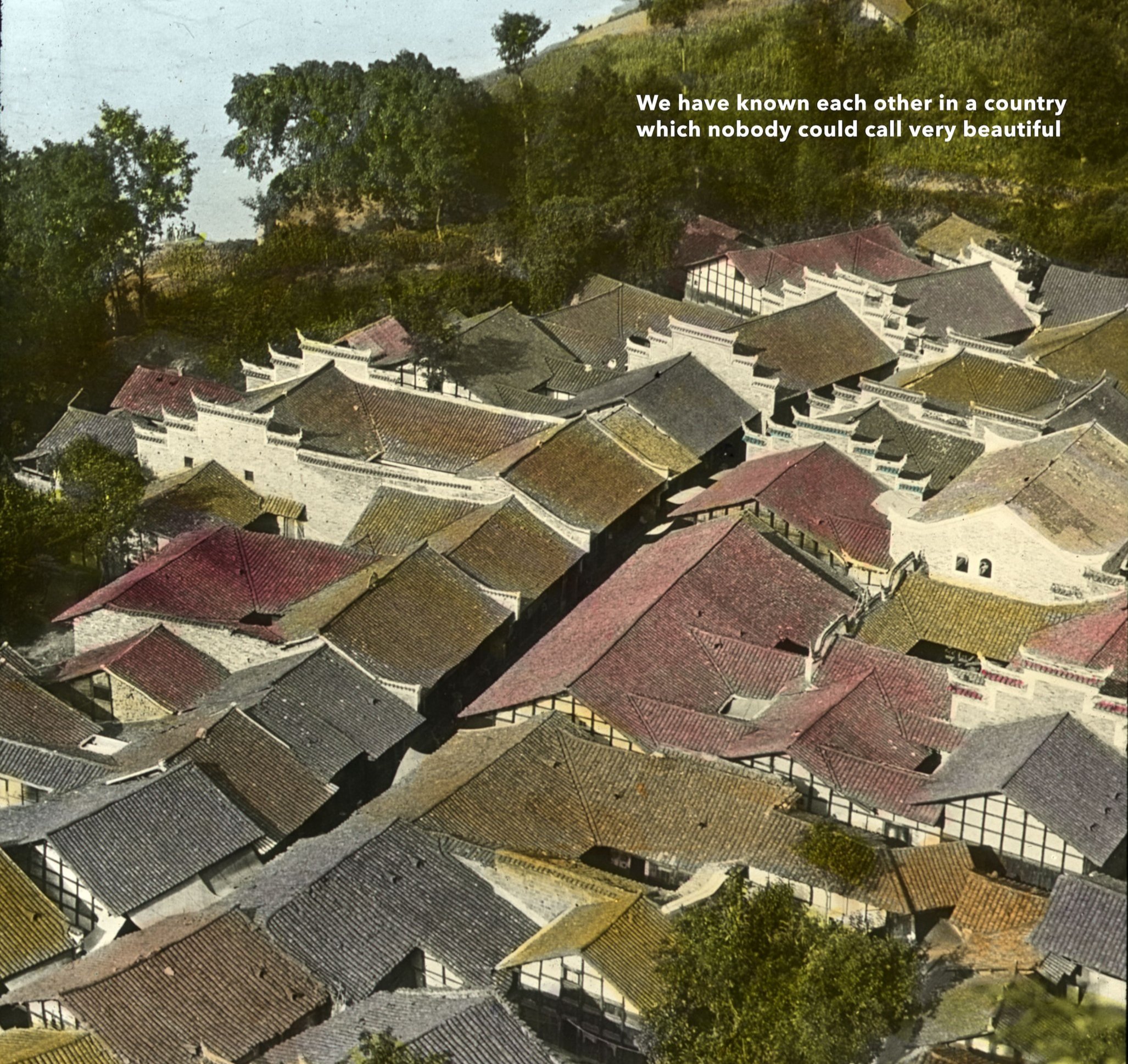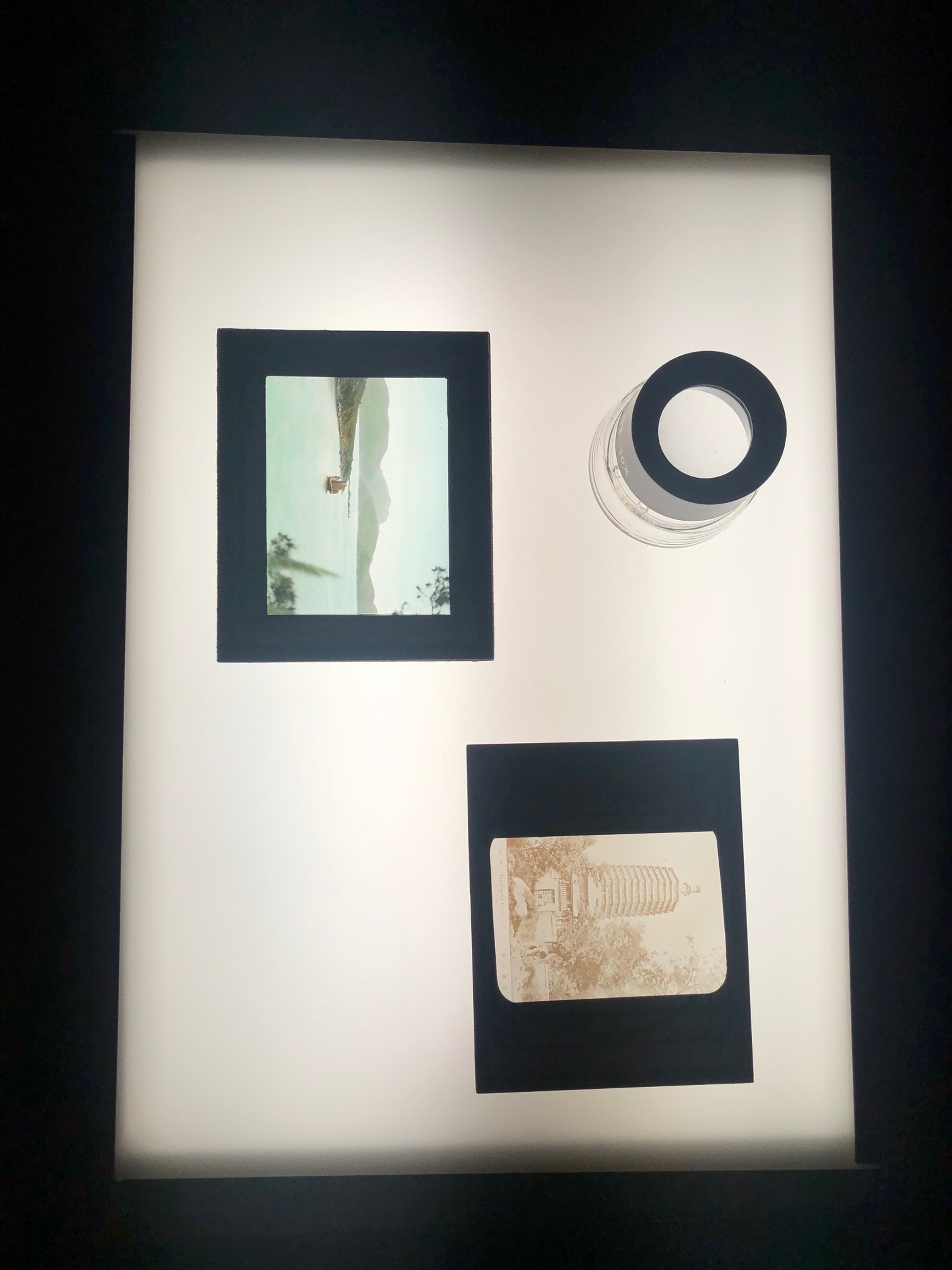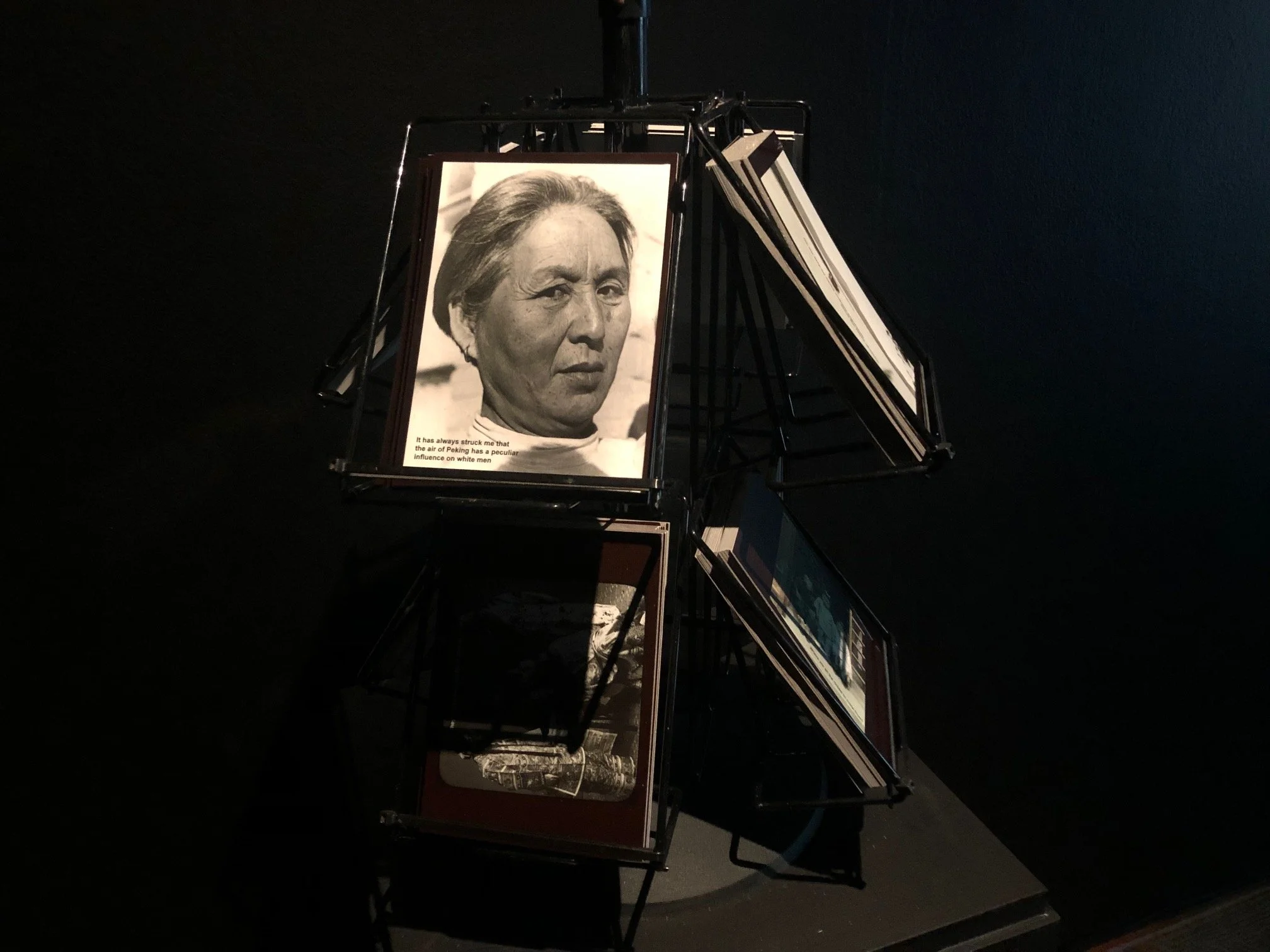What does my body know of photography?
— Roland Barthes

NO TIME IS LOST
It begins in an archive.
During a residency, I find a trove of lantern slides of China. They were taken at the turn of the 19th century – around the time of the Boxer Rebellion and Western domination of the country. Totally mesmerized. So many feelings: I am enchanted, mystified, curious, furious, sorrowed, endeared, alienated, vengeful, kleptomanic, grieving.
It’s also a catalog of Western gazes. The people who made the images are ancestors of the people who, institutionally, shaped my knowledge—from whom I learned language, by whom I was told what history was.
But I want these images back. So I make a single-channel video of these slides. In a voiceover, I read re-arranged passages from The Letters Which Never Reached Him (Briefe, Die Ihn Nicht Erreichten), a 1904 epistolary novel by Elizabeth Von Heyking, wife of the German colonial governor general in Qingdao.
My grandparents are from Qingdao.
The fictional letters chronicle the events leading up to the Rebellion and subsequent foreign occupation of Beijing.
I was born in Beijing.
Now I’m in Berlin, where these colonial images are my only portal to Back There.
Where?
Once, I read in a paper that the discourse surrounding decaying colonial photographs is a lover's discourse, because the decay reminds us of our intimacy with colonial culture, and asks that we imagine ways of letting go.
Direction, Editing: Beina Xu
Sound Design: Gábor Ripli
ROCHESTER, NY // November 2021
We only see what we look at.
We never look at just one thing;
we are always looking at the relation
between things and ourselves.
— John Berger










